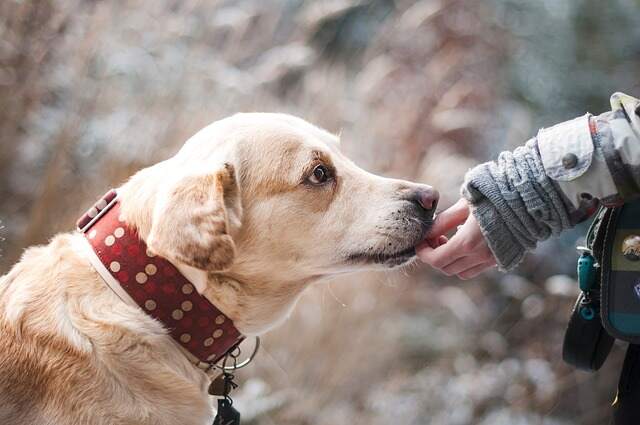In recent years, the demand for dog daycare services has skyrocketed as more pet owners recognize the need for professional care during their busy days. A dog daycare business provides a safe and engaging environment for dogs to play, socialize, and receive the care they need while their owners are at work or away. In this comprehensive guide, we will explore what a dog daycare business entails and provide detailed steps on how to start one.
Basics in Dog Daycare Business
What is a Dog Daycare Business?
A dog daycare business is a facility where dogs are cared for during the day, similar to a child daycare center. These facilities offer a range of services, including supervised playtime, feeding, exercise, and rest periods. The primary goal is to provide dogs with a safe and stimulating environment where they can interact with other dogs and receive attention from trained staff.
Benefits of Dog Daycare
Dog daycare offers numerous benefits for both dogs and their owners:
- Socialization: Dogs have the opportunity to interact with other dogs, which can improve their social skills and reduce behavioral issues.
- Exercise: Regular physical activity is essential for a dog’s health. Daycares provide structured playtime and exercise routines.
- Mental Stimulation: Engaging activities and toys keep dogs mentally stimulated, preventing boredom.
- Professional Care: Trained staff ensure that dogs receive proper care, including feeding, medication administration, and monitoring for any health issues.
- Peace of Mind for Owners: Pet owners can go about their day knowing their dogs are in a safe and nurturing environment.
Steps to Start a Dog Daycare Business
1. Conduct Market Research
Before starting a dog daycare business, conducting thorough market research is crucial. This involves understanding the demand for dog daycare services in your area, identifying your target market, and analyzing your competition. Key questions to consider include:
- How many pet owners are in your area?
- What is the demand for dog daycare services?
- Who are your competitors, and what services do they offer?
- What are the pricing strategies of your competitors?
2. Create a Business Plan
A well-structured business plan is essential for the success of your dog daycare business. Your business plan should include:
- Executive Summary: An overview of your business, including your mission statement and objectives.
- Market Analysis: Insights from your market research, including target market and competition analysis.
- Services Offered: A detailed description of the services you will provide, such as half-day and full-day daycare, grooming, and training.
- Pricing Strategy: Your pricing structure based on market analysis.
- Marketing Plan: Strategies for attracting and retaining clients.
- Operational Plan: Details on the day-to-day operations, including staffing, facility management, and equipment.
- Financial Plan: A projection of your startup costs, revenue, and expenses.
3. Choose a Suitable Location
The location of your dog daycare business is critical to its success. Consider the following factors when choosing a location:
- Accessibility: Ensure your facility is easily accessible for pet owners.
- Space Requirements: The facility should have enough indoor and outdoor space for dogs to play and rest comfortably.
- Safety: The location should be safe and secure, with proper fencing and ventilation.
- Zoning Regulations: Check local zoning laws and regulations to ensure your business complies with all legal requirements.
4. Secure Funding
Starting a dog daycare business requires a significant investment. Consider the following funding options:
- Personal Savings: Use your savings to cover initial costs.
- Bank Loans: Apply for a business loan from a bank or credit union.
- Investors: Seek out investors who are interested in the pet care industry.
- Grants: Research any available grants for small businesses or pet care services.
5. Obtain Necessary Licenses and Permits
Operating a dog daycare business requires specific licenses and permits. These may include:
- Business License: A general business license to operate legally in your area.
- Animal Boarding License: A license specific to boarding animals, which may be required by your local animal control department.
- Zoning Permit: A permit ensuring your facility complies with local zoning laws.
- Health and Safety Inspections: Regular inspections to ensure your facility meets health and safety standards.
6. Design Your Facility
Designing your dog daycare facility involves creating a safe, comfortable, and engaging environment for the dogs. Key considerations include:
- Indoor and Outdoor Play Areas: Separate areas for small and large dogs, with plenty of space for play and exercise.
- Rest Areas: Quiet and comfortable areas for dogs to rest and nap.
- Feeding Stations: Designated areas for feeding, with proper storage for food and supplies.
- Safety Measures: Secure fencing, non-slip flooring, and ventilation systems to ensure the safety and well-being of the dogs.
7. Hire and Train Staff
Hiring the right staff is essential for providing high-quality care. Look for individuals who are passionate about dogs and have experience in pet care. Provide thorough training on:
- Dog Behavior: Understanding and managing different dog behaviors.
- Health and Safety: Administering first aid, recognizing signs of illness, and maintaining a clean environment.
- Customer Service: Interacting with pet owners and providing excellent customer service.
8. Market Your Dog Daycare Business
Effective marketing strategies are crucial for attracting clients to your dog daycare business. Consider the following tactics:
- Website: Create a professional website with detailed information about your services, pricing, and contact information.
- Social Media: Utilize platforms like Facebook, Instagram, and Twitter to engage with pet owners and showcase your facility.
- Local Advertising: Advertise in local newspapers, pet magazines, and community bulletin boards.
- Referral Program: Offer incentives for existing clients to refer new customers.
- Partnerships: Collaborate with local veterinarians, pet stores, and groomers to cross-promote services.
9. Provide Excellent Customer Service
Delivering exceptional customer service is key to building a loyal client base. Ensure you:
- Communicate Regularly: Keep pet owners informed about their dog’s activities and well-being.
- Solicit Feedback: Encourage clients to provide feedback and use it to improve your services.
- Offer Flexibility: Provide flexible drop-off and pick-up times to accommodate busy schedules.
- Show Appreciation: Recognize and reward loyal clients with discounts or special offers.
10. Monitor and Grow Your Business
Once your dog daycare business is up and running, it’s important to monitor its performance and look for opportunities for growth. Regularly review your financials, customer feedback, and market trends. Consider expanding your services or opening additional locations as your business grows.

11. Invest in Quality Equipment and Supplies
To ensure the smooth operation of your dog daycare business, it’s essential to invest in high-quality equipment and supplies. These may include:
- Toys and Enrichment Items: Provide a variety of toys and enrichment items to keep dogs engaged and entertained.
- Cleaning Supplies: Use pet-safe cleaning products to maintain a hygienic environment.
- Feeding Supplies: Stock up on bowls, measuring cups, and food storage containers.
- Grooming Tools: Have basic grooming tools on hand, such as brushes, nail clippers, and shampoo.
- First Aid Kits: Keep first aid kits readily available for any emergencies.
12. Implement Health and Safety Protocols
Maintaining a high standard of health and safety is crucial for the well-being of the dogs in your care. Implement protocols such as:
- Vaccination Requirements: Ensure all dogs are up-to-date on their vaccinations before enrolling in your daycare.
- Health Screenings: Conduct regular health screenings to identify any potential issues.
- Sanitation Practices: Follow strict cleaning and sanitation practices to prevent the spread of diseases.
- Emergency Procedures: Develop and train staff on emergency procedures for various situations, including injuries, illnesses, and natural disasters.
13. Build a Strong Online Presence
In today’s digital age, having a strong online presence is vital for attracting new clients. Here are some strategies to enhance your online visibility:
- Search Engine Optimization (SEO): Optimize your website for search engines by using relevant keywords, creating high-quality content, and obtaining backlinks from reputable sites.
- Online Reviews: Encourage satisfied clients to leave positive reviews on platforms like Google, Yelp, and Facebook.
- Blogging: Start a blog on your website to share valuable information about dog care, training tips, and updates about your daycare.
- Email Marketing: Build an email list and send out regular newsletters with updates, promotions, and helpful tips.
14. Foster a Community Atmosphere
Creating a sense of community within your dog daycare can lead to stronger client relationships and increased loyalty. Consider the following:
- Events and Workshops: Host events and workshops for pet owners, such as obedience training classes, pet first aid courses, and social gatherings.
- Client Appreciation Days: Organize special days to show appreciation for your clients with treats, discounts, and fun activities.
- Social Media Engagement: Engage with your followers on social media by sharing photos and videos of their dogs, running contests, and responding to comments.
15. Stay Updated
The pet care industry is constantly evolving, so it’s essential to stay informed about the latest trends and best practices. Ways to stay updated include:
- Industry Conferences: Attend industry conferences and trade shows to network with other professionals and learn about new products and services.
- Continuing Education: Invest in ongoing education for yourself and your staff through workshops, seminars, and online courses.
- Networking: Join local and national pet care associations to connect with other business owners and stay informed about industry developments.
16. Plan for Future Growth
As your dog daycare business becomes more established, planning for future growth is crucial. Consider the following strategies:
- Expand Services: Introduce additional services such as overnight boarding, dog training, grooming, and retail sales of pet products.
- Open Additional Locations: If demand is high, consider opening additional locations in nearby areas.
- Franchise Opportunities: Explore the possibility of franchising your business model to other entrepreneurs.
- Collaborate with Other Businesses: Form partnerships with local pet-related businesses, such as veterinary clinics, pet stores, and pet-friendly cafes, to cross-promote services and reach a broader audience.
Conclusion
Starting and running a successful dog daycare business requires careful planning, dedication, and a passion for providing top-notch care for dogs. By following these comprehensive steps and continually striving for excellence, you can create a thriving business that meets the needs of pet owners and their beloved pets.
Related: What is Paint and Sip and How to Start a Paint and Sip Business
Related: Golf Simulator Business – How to Start Indoor Golfing





Your writing is like a breath of fresh air in the often stale world of online content. Your unique perspective and engaging style set you apart from the crowd. Thank you for sharing your talents with us.